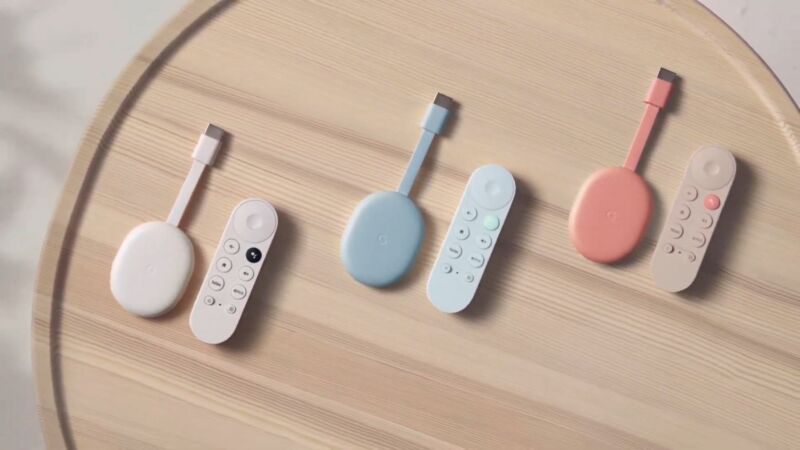
9to5Google reports that Google is prepping a sequel to the Google Chromecast with Google TV. Last year, Google changed the high end of the Chromecast line from a dead-simple, streaming-only video device to a full-blown Android streamer with installable apps, a navigable UI, and a physical remote. The move was effectively a merger of Google’s two TV products, the Chromecast and Android TV, with the revamped, Android TV-based software being rebranded “Google TV.”
9to5Google says the next-generation version of the device is codenamed “Boreal” and was spotted in some documentation next to “Sabrina,” the code name for the current Chromecast with Google TV (which 9to5Google was also the first to discover). The report doesn’t have any details about what we can expect from the new Chromecast, but the current device has some glaring shortcomings that will hopefully be fixed.
The biggest problem with the current Chromecast? You really have to wonder if it was actually designed from the ground up to run Android. The device has a measly 8GB of storage for the entire OS and all your apps and updates. Even $100 Android phones have 64GB of storage now, and 8GB isn’t enough for even light app usage. Some Android games are exceeding 10GB these days, so you can’t install them on the new Chromecast, even before half the storage is reserved for the base OS.
The other problem with the current dongle is the lack of AV1 support. AV1 is Google’s latest video codec, building on the success of VP8 and VP9. AV1’s superior compression and royalty-free licensing have earned it the support of Apple, Amazon, Netflix, Microsoft, Samsung, Intel, Facebook, Arm, Hulu, and a ton of other companies. Google is having YouTube lean so heavily into AV1 that it is building custom AV1 transcoders for its server farms. As deals with YouTube hardware partners are renegotiated, Google is making AV1 hardware support a component of the deal; this was reportedly one of the issues in the Google v. Roku battle.
Google’s own Chromecast with Google TV doesn’t support AV1, though. There’s a good chance Google will fix that problem with the new generation, since using an older codec just produces more bandwidth costs, and that means more money out of Google’s pocket. We can only guess when this device will come out. We’ll probably hear more about it at Google I/O in May.
https://arstechnica.com/?p=1827853

